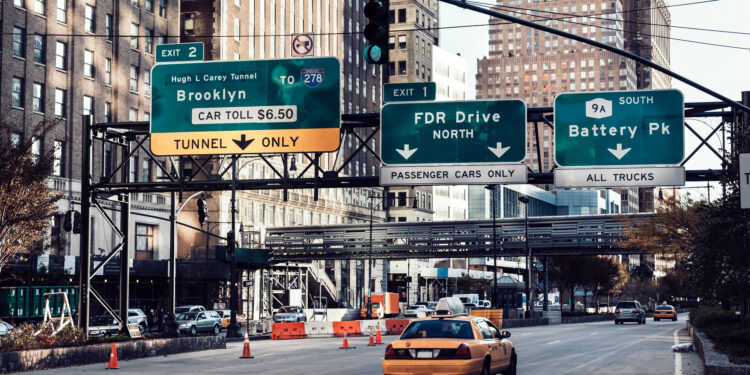On Wednesday, June 5th, the implementation of congestion pricing in New York City was indefinitely postponed. The plan, initially set to begin on June 30th, was delayed due to economic and political considerations.
Governor Kathy Hochul expressed concerns that the timing was not right, given that Manhattan businesses have not fully recovered from the COVID-19 pandemic. The Metropolitan Transportation Authority (MTA), which anticipated $1 billion annually from the plan, now faces a potential budget deficit without this revenue stream.
The delay is also influenced by the upcoming House races in New York City’s suburbs. Democrats, facing tough reelection battles, fear that congestion pricing could be used as a political wedge by Republicans. The governor’s office has not officially commented on these political implications.
Reactions to the postponement have been mixed. Mayor Mark Sokolich of Fort Lee, New Jersey, welcomed the delay, citing concerns over increased traffic and deteriorating air quality in his area. New York City Mayor Eric Adams emphasized the importance of implementing the plan correctly to avoid undue burden on New Yorkers and to support the city’s recovery. Adams stated that collaboration with the governor on various issues has been crucial and that they aim to ensure the plan is executed properly.
On the other hand, transportation expert Sam Schwartz expressed disappointment, arguing that the delay undermines efforts to address transit system challenges. Assemblymember Robert Carroll of Brooklyn also criticized the postponement, highlighting the potential benefits of congestion pricing for funding essential MTA projects and improving urban livability and air quality.
In light of the delay, Governor Hochul is exploring alternative revenue solutions, such as a business tax targeting New York City enterprises. This proposal would require legislative approval, and the current session is set to end soon.
Several lawsuits against congestion pricing remain pending. Officials are awaiting the state’s final decision to determine their legal strategies. Staten Island Borough President Vito Fossella mentioned that the next steps for their lawsuit would depend on the state’s official stance.
Despite the postponement, the belief that congestion pricing is inevitable persists. The plan, when implemented, will charge $15 for passenger cars and up to $36 for trucks driving south of 60th Street during peak hours on weekdays, with some exceptions.










